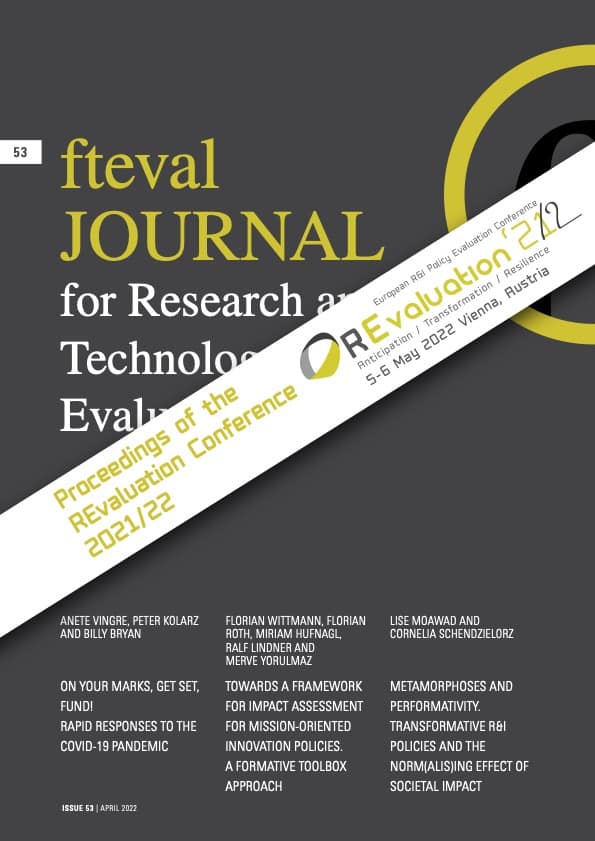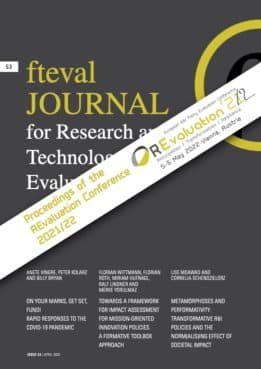On you marks, get set, fund! Rapid responses to the Covid-19 Pandemic
Erscheinungsdatum: 20 April 2022 | Sprache der Studie: EN
This paper presents findings from an analysis of seven multidisciplinary national research funders’ responses to COVID-19. The background work for this study was conducted as part of a recently completed process review of UKRI’s research and innovation (R&I) response to COVID-19 (Kolarz et al, 2021), which included a substantial international comparative dimension. We begin by positing that funders’ responses went decisively beyond pandemic response in the conventional sense and amounted to a largely unprecedented type of R&I funding. COVID-19 marked the first time many research funders were called on to rapidly mobilise researchers from a broad range of disciplines and fund large bodies of research as rapidly as possible to respond to a major unfolding societal crisis. And it may not be the last. OECD figures help to give a sense of the scale of the global R&I funding response to COVID-19: the OECD Science, Technology, and Innovation Policy Compass COVID-19 tracker database lists 702 policy initiatives targeting COVID-19 pandemic across the OECD countries (OECD, 2021b).
The OECD estimates that over $7b were unlocked in the first nine months of 2020 (OECD, 2021a). Funders introduced new measures and extended the duration of ongoing research and deadlines for new calls for applications (Stoye, 2020). In some cases, funders made only one-off investments in 2020, whereas other measures continue to operate in 2021. Across many of these measures, the need for a rapid response meant that ‘business-as-usual’ funding processes had to change – at least by accelerating existing processes, or indeed by modifying them more substantively. At the same time, funders had to ensure that acceleration and modification did not compromise the quality of decision-making, i.e., that they still funded high-quality research. Studying and understanding these funding responses has merit from an evaluative point of view: did funders perform as well as they could have done? But COVID-19, its countermeasures and consequences also highlighted the critical role that public research funders play in major societal emergencies. Understood as a wider societal emergency rather than strictly as a pandemic, an assessment of funders’ responses to COVID-19 can therefore also help to define some parameters for a rapidresponse toolkit suited to future crises, health-related or otherwise. Academic literature on the need for rapid research and the response of funders is scarce. It focuses either on the implications for research practice (see, for example, Richardson et al, 2021; Lurie et al, 2021) or on funding for clinical research. For example, the main recommendation of Sigfrid et al.’s 2020 review of the academic literature on clinical research responses to pandemics (including COVID-19) was to increase STI preparedness before a pandemic rather than a purely reactive response. Dedicated emergency funding for the rapid release of funds, strong international collaborations and community engagement (e.g., involving affected communities in programme design) from the outset were cited as key enablers for a successful rapid STI response. In its most recent STI Outlook, the OECD has roughly outlined some of the approaches taken by funders and highlighted some of the challenges (OECD, 2021b). However, we are not aware of published work exploring this topic in detail with primary data from funders or looking across multidisciplinary research responses.




